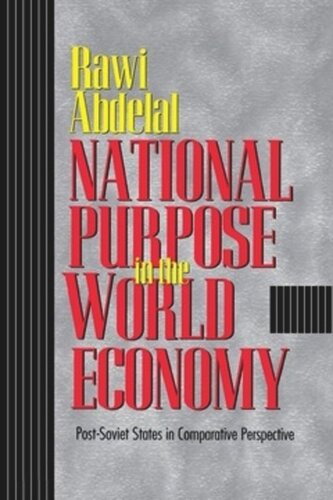

Most ebook files are in PDF format, so you can easily read them using various software such as Foxit Reader or directly on the Google Chrome browser.
Some ebook files are released by publishers in other formats such as .awz, .mobi, .epub, .fb2, etc. You may need to install specific software to read these formats on mobile/PC, such as Calibre.
Please read the tutorial at this link: https://ebookbell.com/faq
We offer FREE conversion to the popular formats you request; however, this may take some time. Therefore, right after payment, please email us, and we will try to provide the service as quickly as possible.
For some exceptional file formats or broken links (if any), please refrain from opening any disputes. Instead, email us first, and we will try to assist within a maximum of 6 hours.
EbookBell Team

4.4
62 reviewsHow do national identities affect the world economy? Building on the insight that nationalisms and national identities endow economic policy with social purpose, Rawi Abdelal proposes a novel theoretical framework, a distinctively Nationalist perspective on international political economy, to answer this question. Using this framework, and drawing on field research in Lithuania, Ukraine, and Belarus, he provides an in-depth look at the link between national identity and the economic policies of the new states formed by the breakup of the Soviet Union.All these states, from the Baltic coast to central Asia, were economically dependent on Russia during the 1990s. However, they reacted very differently to that dependence, and their reactions can be traced, Abdelal contends, to their individual societies. Some, such as Belarus, found dependence inevitable and sought economic reintegration with Russia. Others, like Lithuania, interpreted dependence as a large-scale security threat and reoriented their economies away from Russia. A third group, typified by Ukraine, demonstrated no coherent economic policy at all regarding dependence.Abdelal distinguishes the Nationalist tradition in international political economy from the Realist tradition, and shows that economic nationalism is different than mercantilism. He demonstrates the ways that national identity affects economic policy and explains why some governments seek economic autonomy while others prefer regional reintegration. He then applies his approach to other cases of economic reorganization after the end of empire—eastern Europe in the 1920s after the Habsburgs, 1950s Indonesia, and French West Africa in the 1960s.